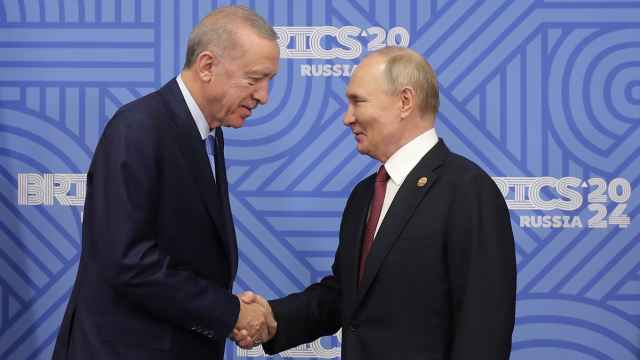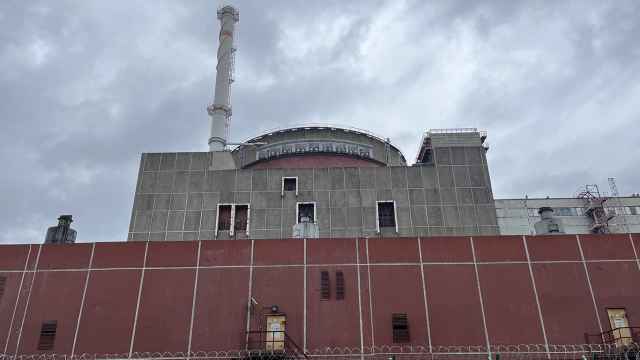Emerging markets have experienced a difficult year. While the U.S. equity market is up by more than 20 percent, the MSCI Emerging Markets Index is in negative territory. Investors identify two factors that explain this astounding performance gap: the prospect of less easy money in the U.S. economy, and a slowdown in emerging market growth trajectories. So is the emerging market story finished? And what can be said of the role of the U.S. in relation to global capital markets and economic development?
Looking at U.S. monetary policy, it is easy to jump on the populist bandwagon and blame the U.S. Federal Reserve for woes as far away as Russia, Brazil and Indonesia, all of which have experienced market stress from the prospect of a decline in quantitative easing in the U.S.
In 2011, President Vladimir Putin described the U.S. as "parasites" living off the global economy through the dominance of the dollar, and the year before Brazilian Finance Minister Guido Mantega accused the U.S. of starting a global currency war by implementing unconventional monetary policies. Now, predictably, as the Federal Reserve has begun to consider reducing its unconventional programs over the past six months, so the emerging markets have experienced dramatic capital outflows.
Although it is true that these flows are, in large part, a direct consequence of U.S. monetary policy, it is not fair to lay responsibility for this at the door of the U.S. True, the dollar remains, by design, the bedrock of the global economy. But it was always clear that the U.S. would necessarily prioritize policies that serve domestic need over perceived global interest. What is more, anyone wishing that the U.S. would do otherwise might want to reflect on the global economic implications. After all, the U.S. remains the largest economy in the world, so its well-being is of importance to all.
All this political venting overlooks the fact that the problems that emerging markets are facing as U.S. monetary policy evolves are not new. Emerging market sovereign bonds have been around since the early 19th century, when they were pioneered in London. That first rush of bonds, issued when Russia counted as a developed world powerhouse and Latin American countries were claiming independence, ended badly. The Bank of England increased rates to deal with domestic issues, and capital flowed back to bonds issued by the global safe haven, causing that now familiar whooshing sound in more exotic nations that had provided attractive yields relative to low domestic rates.
This cycle has been perfectly reliable ever since. Just as surely as bond yields decline when their market prices rise, so, too, emerging market capital flows are a function of interest rates in supposedly less risky developed countries. Approaching the issue from this perspective, with the benefit of hindsight, responsible policy would focus on how to manage and mitigate predictable problems, rather than on complaining about them. Brazil made some effort. Yes, it has been complaining, but it also implemented a counter-cyclical tax on some capital flows. India and Indonesia proved less well prepared for the obvious and are paying a heavy price today. For its part, Russia has suffered less, in part as a result of being such an unpopular investment location earlier in the cycle, and in part because interest rate cuts expected from the Central Bank have sustained ruble bond demand.
The important takeaway from this lesson of financial history is that capital flows reflect changes in the relative rewards for perceived risks between different investments. Emerging market asset prices are declining because yields are improving in the U.S. and other developed nations. Thus, these falling prices don't automatically infer a problem in the emerging markets themselves. And yet, there can be little doubt that economic growth rates are slowing. China grew at 10 percent as recently as 2010, and today it is growing at less than 8 percent. Brazilian growth slowed from more than 7 percent to about 3 percent over the same period. What's more, the Economic Development Ministry recently slashed its own long-term forecasts. No wonder people are arguing the end of the emerging market story.
What is going on?
The short answer is that the emerging markets are changing. Educated by the crises of the 1990s, these countries met the 2008 global financial crisis with strong economic defenses. These defenses were well deployed in the difficult days of 2008 and 2009. As a result, the emerging markets showed sustained growth, even as the developed world suffered. This growth added to their allure and sucked in even more capital than would normally be expected in such a cycle.
Such stimulus was limited in durability, however. It contributed well to the infrastructure role of China and boosted growth by doing so. But in the absence of structural reforms, such growth was unsustainable. Unsurprisingly then, its impact phased out as growth models reached their limits.
Where does this leave us?
Today, regional and global economic expectations are shifting as countries recognize their growth limits. China's Third Plenum on long-term economic planning, which was disappointing at first, eventually yielded an ambitious reform agenda. India now has a responsible central banker and elections on the horizon, and Russia is edging slowly toward an ambitious set of genuine development goals.
The emerging markets have a lot of work ahead of them. But they seem to understand that the gap between rich and poor nations has narrowed. The easy gains of the previous cycle are hardly repeatable, particularly as technology reduces the cost of localized production. It is true that Europe has recently been a fine example of how painful reforms get postponed until crisis makes them unavoidable. But politicians in emerging markets are now beginning to talk the talk. The road ahead is tough. The task is to turn corrupted, inefficient and poorly regulated economies into efficient systems that protect investor interests and are flexible enough to survive the travails of economic cycles. It will take focus and determination to get there, but early signs are hopeful.
James Beadle, an independent investment advisor, has been managing Russian money for 12 years.
A Message from The Moscow Times:
Dear readers,
We are facing unprecedented challenges. Russia's Prosecutor General's Office has designated The Moscow Times as an "undesirable" organization, criminalizing our work and putting our staff at risk of prosecution. This follows our earlier unjust labeling as a "foreign agent."
These actions are direct attempts to silence independent journalism in Russia. The authorities claim our work "discredits the decisions of the Russian leadership." We see things differently: we strive to provide accurate, unbiased reporting on Russia.
We, the journalists of The Moscow Times, refuse to be silenced. But to continue our work, we need your help.
Your support, no matter how small, makes a world of difference. If you can, please support us monthly starting from just $2. It's quick to set up, and every contribution makes a significant impact.
By supporting The Moscow Times, you're defending open, independent journalism in the face of repression. Thank you for standing with us.
Remind me later.





